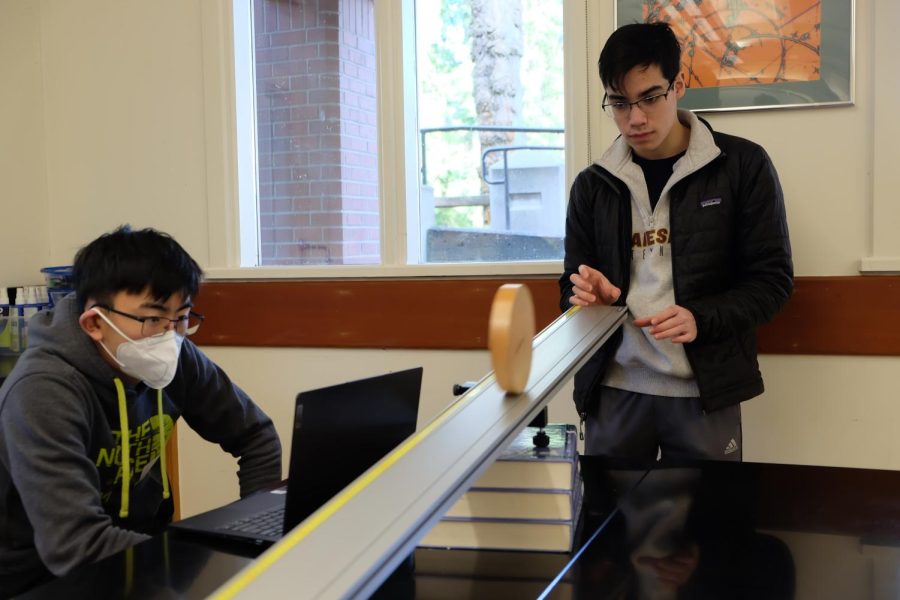Science Department Recalibrates Course Requirements
In the past two years, no department has seen more curriculum changes than the science department. From swapping out Engineering for Modern Physics and Electronics to allowing Calculus AB students into Calc-Based Physics, the department has restructured many of its courses. Although that restructuring brought with it more accessibility to higher-level classes, many students became concerned that the curriculum had lost rigor. Amber P. ’25 and Rohan D. ’25 sat down with Dr. Parry, the head of the science department, to find out more about the science department’s approach to advanced courses and the requirements to take them.
For the most part, Dr. Parry explained, changes to course curricula are determined by the expertise available in the department. For example, when Mr. de Grys shifted from being a chemistry teacher to being the Academic Dean, the Advanced Organic Chemistry course was replaced with Advanced Neurochemistry in order to better fit the skill set of the incoming teacher. Other science courses, such as Modern Physics and Electronics, have also undergone changes to their curricula to match department expertise (as well as student appeal). That being said, as Dr. Parry explained, the science department always aims to ensure that the same educational niche filled by the old course is accounted for by the new one.
Conversely, changes to course requirements are tailored to the experience of the students rather than the experience of the department. For instance, the Advanced Calculus-Based Physics course, which previously accepted students who were at least co-registered in any level of Calculus, is now only open to those at least co-registered in Calculus BC. According to Dr. Parry, it became apparent that the topic coverage of the course was such that the advanced calculus taught in BC wasn’t actually used until the very end of the course. As the pacing of the course shifted, there was a concern that Calculus AB would no longer adequately prepare students for the elective, and thus, a change to the course requirements became necessary.
Nevertheless, students often aim to bypass Lakeside’s system of requirements by skipping ahead in the regular progression of science courses. This, according to Dr. Parry, can be a difficult situation for the department to navigate. Ideally, each Lakeside student would begin with an introductory course in Biology in order to build fundamental skills and gain crucial practice in areas such as scientific writing. However, the scientific backgrounds of the student body vary, and that necessitates some exceptions, usually taken care of by placement tests, though it’s very rare for students to place out of any class (this year only one freshman placed out of biology).
This variation in backgrounds can also make curriculum planning difficult. For instance, the recent changes to the Honors Physics curriculum were enacted in order to account for the wide range of prior knowledge with which students were entering the class. However, because the science department has a lot of freedom in choosing the activities, methods, and materials which they incorporate into their courses, they’re able to make these changes adaptively and responsively.
The future of the science department lies with its teachers and their specialties. For Lakeside to offer the best and most unique courses it can, teachers must prioritize its capacity for creativity and nurture its greatest strengths — which, in science, often comes not from mathematical ability or prior experience, but rather creativity and resilience.
Since COVID, Amber has branched into a journalism as a passion, with inflammatory articles like replacing the Quad with a parking lot to "eliminate the...
Ever since his little incident in April 26, 1986, Rohan Dhillon has been on the run from a variety of governmental agencies and human rights organizations—...

